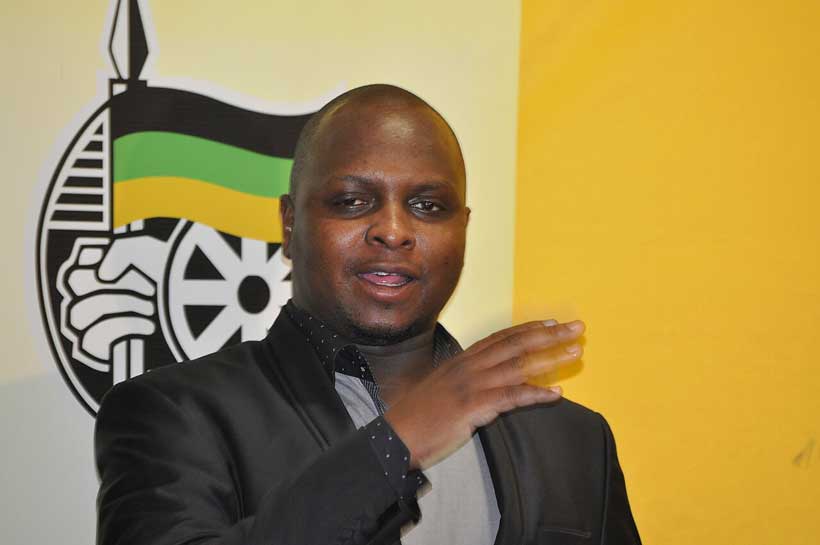‘What happens to a dream deferred, Does it dry up like a raisin in the sun’? Langston Hughes’ haunting question is beginning to echo uncomfortably in the political lifeline of Floyd Shivambu. Once a fierce and eloquent voice in Parliament’s red berets, today Shivambu finds himself marginalized, demoted to the political backbenches of the newly formed MK Party (MKP). A career that once burned with promise now flickers in uncertainty.
Was his fall from political prominence an accident, or was it engineered?. From the commanding front benches of the EFF to the shadows of the MKP, Shivambu’s descent raises critical questions. Was his departure from the EFF a genuine political realignment, or a cleverly orchestrated move to destabilize Julius Malema’s party by luring away one of its sharpest minds? Could this have been a strategic masterstroke by the likes of Jacob Zuma, a political chess player known for his ability to manipulate alliances and rivalries to his advantage?
If Shivambu was poached, it was certainly not for a promotion. Within months of joining MKP, he appears to have been politically neutered. Public disputes, such as the reported spat with Duduzile Zuma-Sambudla, Jacob Zuma’s daughter, have only added fuel to speculation that Shivambu was never meant to flourish in MKP, only to falter. Was he simply unaware of the unwritten rule that MKP is less a political party and more a Zuma family affair?
Some argue that this was less about strategy and more about power consolidation, not just weakening the EFF, but silencing an independent voice that could challenge the growing cult of personality around the Zuma’s within MKP. In that reading, Shivambu was not just collateral damage, he was the target.
Progressive Forces Eating Their Own? This unfolding saga raises disturbing questions about the nature of South Africa’s so-called progressive forces. How did a movement born from struggle and revolution devolve into petty factionalism and guerrilla-style politics against its own members? While the Democratic Alliance continues to mount a serious opposition to transformative policies, those who once stood together for economic emancipation are now sniping at each other from inside their trenches. It’s not just a tragedy for Shivambu. It’s a betrayal of the broader transformation agenda. Politically, Shivambu faces a daunting crossroads. The MKP seems to be squeezing him out. A return to the EFF is unlikely, not least because of the silence, or strategic distancing by Julius Malema and senior EFF leaders regarding Shivambu’s current woes. Their silence may be a political statement in itself. Or perhaps, they saw it coming.
Shivambu’s options appear limited. He could attempt to reinvent himself as an independent political voice, but without a party infrastructure or public platform, the road is steep. Alternatively, he might pivot to civil society, academia, or media spaces where his intellect and experience could still influence discourse. But make no mistake, the days of legislative thunder from the EFF’s deputy president may be behind him.
Political commentators like Tshidi Madia of Eyewitness News and others have noted the oddity of Shivambu’s muted role within MKP. Once celebrated for his incisive critiques and command of policy detail, he is now a near-invisible figure in a party defined by populist rhetoric and internal power dynamics. Madia and others suggest this was less an ideological shift and more a miscalculation on Shivambu’s part, one that may cost him his political future.
MKP’s Blind Spot In its apparent mission to sideline Shivambu reveals its own weaknesses. A political movement that cannot tolerate internal diversity or accommodate experienced leadership may soon find itself irrelevant. The very act of ejecting those with independent thought betrays a deeper insecurity and an inability to transform from a personality cult into a credible political force. Floyd Shivambu may not have been perfect, very few in politics are but his marginalization marks more than just a personal tragedy. It reflects a broader crisis in South African progressive politics, a moment when internal rivalries and unchecked egos are dismantling movements from within. If a figure as pivotal and principled as Shivambu can be cast aside so easily, what hope is there for unity, let alone transformation?
In the end, Hughes’ poem lingers: “Or does it explode?” Time will tell whether Shivambu’s deferred dream leads to a rebirth, or the quiet explosion of a once-promising career. The biggest takeaway from the Shivambu-MKP debacle is the deepening disunity among parties that claim to represent the economically marginalized and working-class majority. Rather than building a unified front against inequality and state capture by elite interests, progressive parties are cannibalizing each other.
By 2026, South Africa is likely to experience more splinters and splinter parties formed from fallouts within MKP and EFF. Weaker coordination at municipal and ward levels, especially in metros like Johannesburg, Ekurhuleni, and eThekwini. Increased voter confusion as ideological lines blur between former comrades turned competitors. The 2026 local elections could be a watershed moment not because of who wins outright, but because it will reflect whether progressive politics in South Africa can regroup or whether it has entered a cycle of permanent fragmentation. Unless bold leadership emerges to build bridges, articulate a unifying agenda, and restore public trust, the progressive forces risk becoming irrelevant spectators in the very struggle they once led.
